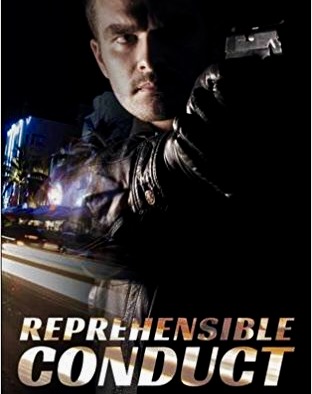
Malacek v Young BCSC 2021 awarded special costs against the daughters of the deceased who claimed that the surviving spouse of 37 years had separated prior to the deceased’s death.
The court found that there was no evidence for such assertions and that they were “based on nothing more than conjecture, speculation, and for the most part, [did] not even rise to that low level.”
The court found that the Daughters had been engaged in a long term campaign to convince Hall to divorce Carol, but that he had resisted their attempts to do so.
The Law of Special Costs
It appears from a review of the case law that more and more cases are being reported with respect to the issue of costs.
The courts are increasingly willing to “ punish” spurious claims with an award of special costs which usually means that the losing party pays the winning parties entire legal fees.
In Smithies Holdings Inc. v. RCV Holdings Ltd., 2017 BCCA 177 at paras. 56 to 57, the Court of Appeal noted the types of conduct that attract special costs. Such conduct includes reprehensible conduct, conduct from which the court seeks to dissociate itself, conduct deserving of reproof or rebuke, and conduct that is scandalous or outrageous.
[56] Special costs are typically awarded when there has been some form of reprehensible conduct on the part of one of the parties: Young v. Young [1993] 4 SCR 3 at 134–138. Special costs are not compensatory; they are punitive: Grewal v. Sandhu, 2012 BCCA 26 at para. 106. They are awarded when a court seeks to disassociate itself from some misconduct: Fullerton v. Matsqui (District) (1992), 74 B.C.L.R. (2d) 311 (C.A.) at para. 23. There are circumstances where special costs may be ordered where there has been no wrongdoing: Gichuru v. Smith, 2014 BCCA 414 at para. 90. These reasons are not concerned with such types of cases.
[57] The leading authority on special costs is this Court’s decision in Garcia v. Crestbrook Forest Industries Ltd. (1994), 9 B.C.L.R. (3d) 242 (C.A.). There, Mr. Justice Lambert, writing for the Court, set out that the threshold for special cost awards is “reprehensible conduct”. He noted the continuum of circumstances in which special costs could be awarded, ranging from “milder forms of misconduct deserving of reproof or rebuke” to “scandalous or outrageous conduct”:
[17] Having regard to the terminology adopted by Madam Justice McLachlin in Young v. Young, to the terminology adopted by Mr. Justice Cumming in Fullerton v. Matsqui, and to the application of the standard of “reprehensible conduct” by Chief Justice Esson in Leung v. Leung in awarding special costs in circumstances where he had explicitly found that the conduct in question was neither scandalous nor outrageous, but could only be categorized as one of the “milder forms of misconduct” which could simply be said to be “deserving of reproof or rebuke”, it is my opinion that the single standard for the awarding of special costs is that the conduct in question properly be categorized as “reprehensible”. As Chief Justice Esson said in Leung v. Leung, the word reprehensible is a word of wide meaning. It encompasses scandalous or outrageous conduct but it also encompasses milder forms of misconduct deserving of reproof or rebuke. Accordingly, the standard represented by the word reprehensible, taken in that sense, must represent a general and all encompassing expression of the applicable standard for the award of special costs.
In Solex Developments Co. v. Taylor (District) (1998), 60 B.C.L.R. (3d) 53 (C.A.), and McLean v. Gonzalez-Calvo, 2007 BCSC 648 [McLean], it was held that special costs may also be awarded where the plaintiff’s case is so weak it amounts to misconduct.
At para. 26 of McLean, Madam Justice MacKenzie wrote:
[26] An additional basis for an award of special costs arises because the plaintiff’s case was so weak it was bound to fail. In Solex Developments Co. v. Taylor (District) (1998), 60 B.C.L.R. (3d) 53 (C.A.), an award of special costs was upheld on this ground. Madam Justice Southin said at paras. 26 and 27:
I consider this was a proper case for special costs, but not for the reasons of the learned judge which are founded on what the appellant did to collect evidence before bringing the proceedings and of what she considered its improper purpose or motive in seeking to set aside the approval.
It can, in my opinion, be misconduct in litigation, as that phrase is used in the authorities, to persist with a claim under the Judicial Review Procedure Act, a claim which in this case affects someone else’s private right, when it is plain that, in the circumstances, the claim is bound to fail. Once the appellant knew from the affidavit of Mr. Scriba that, in fact, the spirit of the Waste Management Act was being observed by the respondent, it ought to have accepted that it could not succeed.




